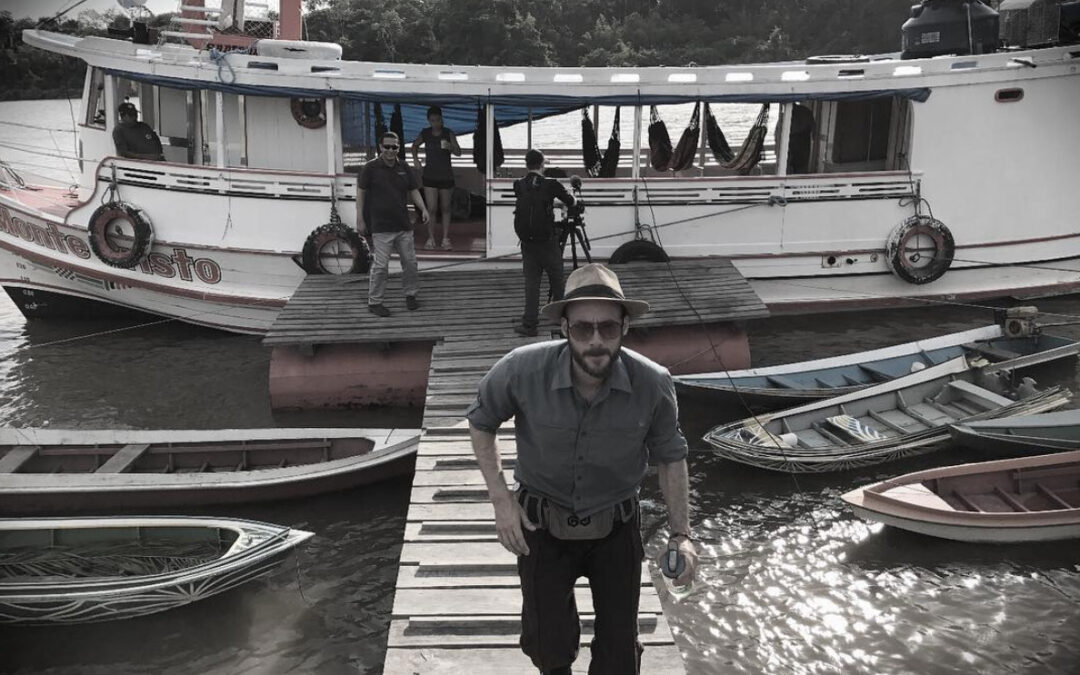(IMAGE: Curtis Birch)
Curtis Birch. 2021. Documentary. 51 minutes.
RATING: 1 out of 4
I know what you’re probably thinking when you see that title. Because I was thinking it too: this sounds like homework. Let’s face it – anyone to whom a documentary of that title might be appealing probably
already has a basic grounding in the issues. Or at least has watched Food, Inc. Conscious commerce, we are told, in both the movie and the promotional materials, means running a business with concern for social and environmental factors in addition to financial. Seeding Change might have you believe all three factors are equally important now, but realistically…if a business can no longer meet its social obligations, will it automatically fail? Probably not. Now, what if it fails to meet its financial obligations? Same thing?
At 51 minutes. Seeding Change isn’t exactly the drudgery it may sound – it’s constantly upbeat and cheery. But it’s barely a movie. Structurally, its main tactic is to present a problem via a brief black and white clip overlaid with text – food landfills give off dangerous amounts of methane, for example. Then immediately cut to somebody running a business trying to counter that problem, like a food truck that runs on food waste, or an app that tells hungry students when a cafeteria is throwing food away. The main thrust of the film is that we can all help the problems facing the environment by patronizing these businesses rather than others. Sambazon acai! Numi tea! Outerknown sustainable clothing!
Does the film itself ever feel obliged to point out that director Richard Yelland has, according to his official bio on the film’s website, made films directly for at least one of these companies? Oops.
But it makes sense. This feels less like a social issue documentary and more like a pitch video for venture capitalists to invest in the companies shown. There’s no sense that any of the folks on camera are saying anything different on camera than they would in commercials for their products. The likes of Michael Moore and Dinesh D’Souza may ask leading questions in their political advocacy documentaries, but at least they ask. If Yelland doesn’t take any of this at absolute face value, there’s no indication of that.
Not that he necessarily has to, and maybe there is no reason to second-guess anyone here. But when the only solution proposed to a problem caused by capitalism is simply “do more capitalism with good people only,” it feels like something’s been missed. Instead of buying stuff from different people, has anyone considered buying less stuff?
If the inherent assumption is that Americans can’t or won’t adapt to a non-capitalist model, that’s fine. But say it out loud. The notion that optimism is contagious is understandable. The idea that one can work
within our system is fine, when overthrowing it feels too daunting, or may have excessive negative ramifications in the other direction. The idea that green businesses will save everything needs to withstand a bit more scrutiny. If only so we don’t disproportionately disillusion the next generation when things don’t happen as quickly as they expected.
On the plus side, the shots of the Amazon are beautiful, and if they inspire anyone to help save the land there before business interests get to the desertification stage, that’s great. Acai berries seem like a better
investment bet than Ben and Jerry’s Rainforest Crunch ice cream back in the day; let’s hope their time in the health food spotlight lasts longer than that of Pom Wonderful. Or Josta. (Thank you, Disney’s Loki, for reminding me of that particular delicious, vaguely pro-Amazon basin-themed ’90s soda from Pepsico.)
If you’re in the mood for happy-faced small businessfolk who look like ex-hippies pitching their wares while an endless loop of public domain-sounding music plays in the background, you may enjoy this more than I. Or you could go to a farmer’s market, get a more fulfilling version of the spiel, and actually come away with a meal in hand.
###

